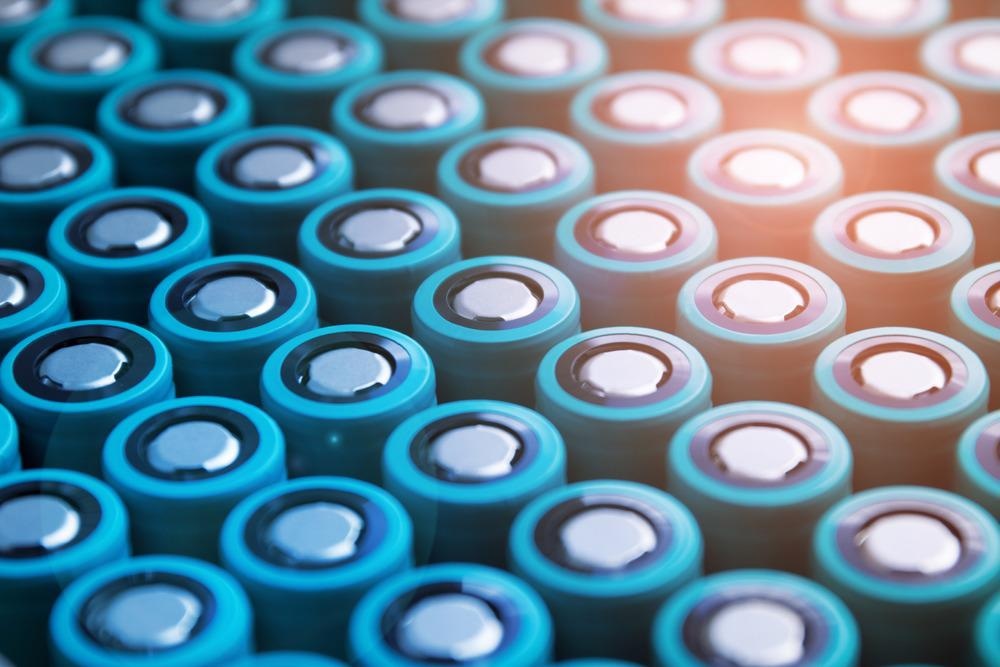A paper published in Metals has considered the recovery of cobalt from spent lithium-ion batteries as a method to meet the growing demand for the material from sectors such as transportation.

Study: Cobalt Recovery from Li-Ion Battery Recycling: A Critical Review. Image Credit: P5h/Shutterstock.com
Cobalt: A Critical Material
Cobalt is used as a cathode material in lithium-ion battery production. The majority of the global supply of cobalt comes from the Democratic Republic of the Congo along with a few other locales and is therefore at risk of supply chain interruption in the short and medium-term due to geopolitical forces, economic instability, and its replacement and recycling rate. Cobalt is classed as a critical material by several leading economies.
The USA classifies cobalt as critical amongst 35 other elements. The European Union has classified cobalt as the tenth most critical material on a list of 83 raw materials that are utilized by industry. Factors that influence the criticality of cobalt include the aforementioned geopolitical and economic factors alongside its importance for clean technologies and its resource availability.
The Environmental and Societal Impacts of Cobalt Mining

Chemical structure of (a) phosphonic acid and (b) amine-based extractants used in solvent extraction step for Co recovery. Image Credit: Junior, A.B et al, Metals
Aside from issues with its criticality as a resource, extracting raw cobalt presents environmental challenges. The main challenge comes from the pollution the extraction process causes. Human exposure in contaminated areas is 6 times that of uncontaminated areas, and the impact of cobalt mining on ecosystems causes massive damage to local flora and fauna as well as vital water supplies. Furthermore, mining causes deforestation and is responsible for greenhouse gas emissions.
Additionally, cobalt mining activities have a societal impact. Loss of life and land that indigenous populations rely on, along with conflict that stems from mining activities, has a massive effect on populations. In the long term, mining cobalt is not a sustainable practice. Moreover, the criticality of the resource is increasing, which is in part driving the increased extraction of cobalt, leading to further environmental damage, conflict, and social impacts.
Recovering Cobalt from Spent Batteries: A Better Way?
The demand for cobalt and the devices it is used in is increasing exponentially. As the world decarbonizes, electrification of industry, energy generation, and the transportation sector is gathering pace. Several emerging technologies such as drones and electric vehicles all require cobalt as a cathode material for batteries and fuel cells. 57% of the world’s cobalt supply is used to produce batteries, 13% is used for Nickel-based alloys, and 8% is used for tools and equipment material.
![Functional groups of chelating resins reported in the literature for Co recovery: (a) iminodiacetate; (b) bis-pycolilamine; and (c) aminophosphonate acid [37,87,96].](https://d12oja0ew7x0i8.cloudfront.net/images/news/ImageForNews_57728_16396608604239412.jpg)
Functional groups of chelating resins reported in the literature for Co recovery: (a) iminodiacetate; (b) bis-pycolilamine; and (c) aminophosphonate acid. Image Credit: Junior, A.B et al, Metals
A better way to meet the growing global demand for cobalt than raw resource extraction could be the recovery of cobalt from spent lithium-ion batteries, which are the main technological application of the material. This type of resource extraction has been termed “urban mining.” Extracting this critical material from industrial waste promised to reduce the carbon footprint of the industry, whilst addressing the problems with the global supply chain and reducing environmental and social impact.
Considering Urban Mining of Cobalt
The potential of recovering cobalt from spent lithium-ion batteries is the central focus of the study published in Metals. Battery waste is abundant and compounds the issue with waste from human activities. Additionally, the cobalt within them is being lost, and as it is a finite resource, this causes massive problems for the industry.
The authors behind the study in Metals have identified a dearth of research into emerging, greener technologies for the recovery of cobalt from lithium-ion battery waste. They have reviewed current techniques for cobalt recovery, including inorganic and organic acid leaching, solvent extraction, and precipitation. Additionally, emerging technologies are discussed, such as nanotechnology, biohydrometallurgy, and ionic liquids.
The research paper has identified future research potentials and has stated that future research directions should concentrate on the pros and cons of each of these techniques. New recycling processes are discussed in the manuscript, which the authors have stated will be their main focus in future studies.
The Future
Cobalt is a finite, critical resource for which demand is growing exponentially. As the world moves away from its reliance on coal, oil, and natural gas, ensuring its supply is of key concern to industry and governments. The environmental, societal, and political impact of resource extraction is well-documented, facilitating the need to look for other, greener, more sustainable solutions.
By presenting a review of current technologies that can be used for recovering this material from spent lithium-ion batteries and providing perspectives for future research directions, the study published in Metals has provided important insights that will aid the clean technology sector’s commercial viability.
Further Reading
Junior, A.B et al. (2021) Cobalt Recovery from Li-Ion Battery Recycling: A Critical Review [online] Metals 11(12) | mdpi.com. Available at: https://www.mdpi.com/2075-4701/11/12/1999/htm